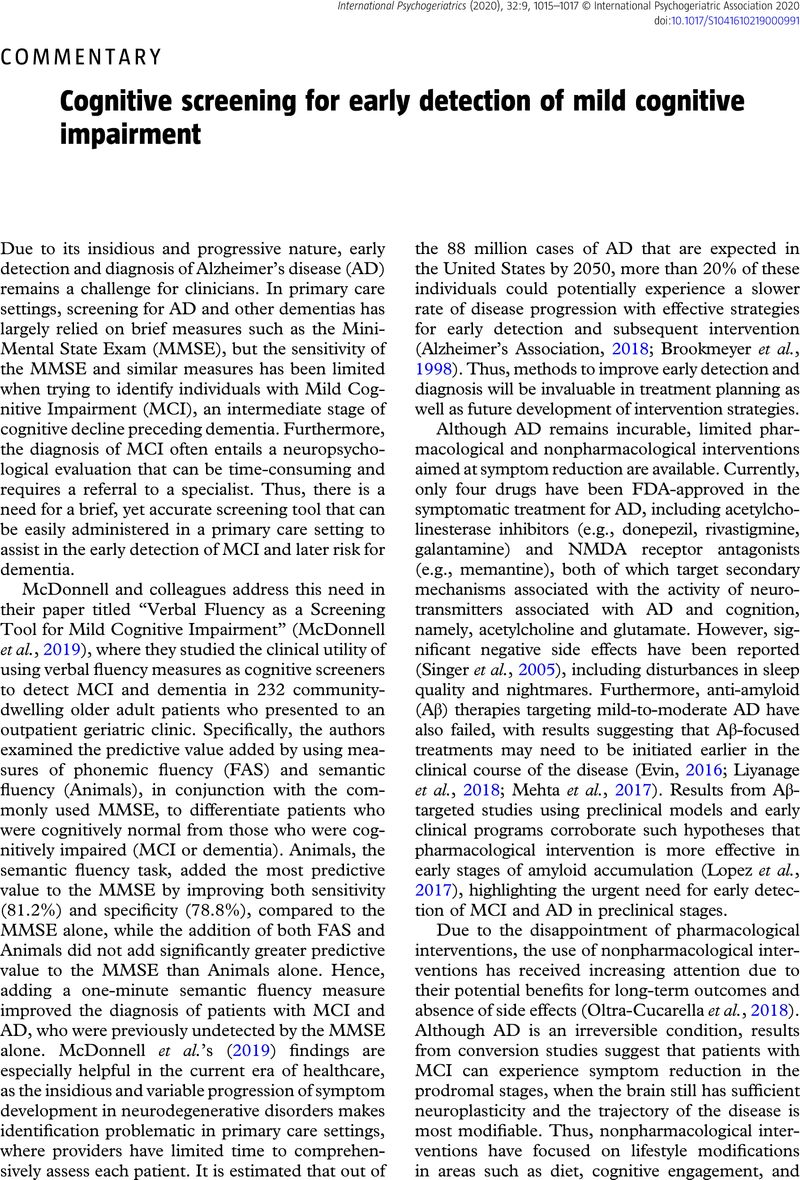Crossref Citations
This article has been cited by the following publications. This list is generated based on data provided by Crossref.
Ramakers, Inez H.G.B.
and
Verhey, Frans R.J.
2022.
Screening for neuropsychological assessment in the diagnostics of neurocognitive disorder.
International Psychogeriatrics,
Vol. 34,
Issue. 6,
p.
519.
Kostic, Milena
Fisekovic-Kremic, Marina
and
Kis-Veljkovic, Mira
2023.
Recognition and treatment of mild cognitive impairment in Serbian general practice.
Srpski arhiv za celokupno lekarstvo,
Vol. 151,
Issue. 1-2,
p.
58.
Ruzi, Rukiye
Pan, Yue
Ng, Menwa Lawrence
Su, Rongfeng
Wang, Lan
Dang, Jianwu
Liu, Liwei
and
Yan, Nan
2025.
A Speech-Based Mobile Screening Tool for Mild Cognitive Impairment: Technical Performance and User Engagement Evaluation.
Bioengineering,
Vol. 12,
Issue. 2,
p.
108.
Molina-Torres, Nora
Platero, Carlos
Pérez-Berasategui, Oscar
Andrés-Benito, Pol
Povedano, Mónica
Mesa-Lampré, Pilar
Abadía-Morales, María
Calvo, Ana-Cristina
Lobo, Antonio
De La Cámara-Izquierdo, Concepción
and
Osta, Rosario
2025.
Clinical parameters predicted the progression to dementia in oldest old patients with mild cognitive impairment (MCI).
International Psychogeriatrics,
p.
100129.
Wang, Jincheng
Oppong, Philip Kyeremeh Jnr
Kitagawa, Maho
Aoyama, Hidefumi
Onodera, Shunsuke
Terae, Satoshi
and
Tha, Khin Khin
2025.
DTI Histogram and Texture Features as Early Predictors of Post-Radiotherapy Cognitive Decline.
Applied Sciences,
Vol. 15,
Issue. 12,
p.
6794.


